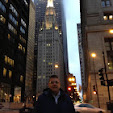Russia condemned NATO's "reckless" and "destructive" efforts, and warned that continued actions near Russia's border would lead to an arms race.
On Friday in response to the ongoing North Atlantic Treaty Organization (NATO) summit in Brussels, the Russian Foreign Ministry condemned in a statement Friday the “destructive line” of NATO allied nations which it said are an attempt to dominate global affairs. The ministry warned that the alliance's actions make a constructive relationship impossible, and will lead to an arms race.
On Friday in response to the ongoing North Atlantic Treaty Organization (NATO) summit in Brussels, the Russian Foreign Ministry condemned in a statement Friday the “destructive line” of NATO allied nations which it said are an attempt to dominate global affairs. The ministry warned that the alliance's actions make a constructive relationship impossible, and will lead to an arms race.
Moscow blamed deteriorating NATO-Russian relations on western aggression. “The growing negative tendency is not Russia's choice,” the Foreign Ministry reiterated. “This is a direct result of a destructive line of the bloc, aimed at reckless achievement of military and political dominance in European and global affairs,” they continued.
The statement comes in response to NATO reaffirming its approach of simultaneously building up defense against Russia, while also seeking a more “constructive relationship.”
“NATO is a defensive alliance. NATO does not seek confrontation with Russia. Actually we recognize that Russia is our biggest neighbour, Russia is here to stay, and we are striving for a better and more constructive relationship with Russia. At the same time, NATO has to deliver credible deterrence and defence. Because by delivering credible deterrence and defence we are preventing conflict. We are preventing war,” NATO Secretary General Jens Stoltenberg said in a press conference on Wednesday.
The statement went on to justify heightened NATO activity near Russia as being necessary following the annexation of Crimea.
However, Moscow does not view NATO actions as “defensive,” as Stoltenberg insisted. Rather they see them as “the alliance's desire to legitimize military preparations near the Russian borders, which – in conjunction with the military activity of individual bloc countries – change the alignment of forces in Europe and lead to a dangerous spiral of an arms race.”
In addition to tensions from conflicts of interest in the ongoing Syrian conflict, last year NATO stationed 1,100 soldiers in the Baltic region close to the Russian border, 900 of which were U.S. troops.
The Russian ministry acknowledged that Russian-NATO relations “are in the deepest crisis since the end of the Cold War,” and went on to condemn efforts at “whipping up a myth on 'a threat from the East'.”
U.S. President Donald Trump has pressured for NATO European allies to increase military spending in order to do their “fair share.” Doubts are cast over the unpredictable U.S. President's committment to the organization, which he called "obsolete" while campaigning.
NATO was founded in 1949 as a collective defense alliance between various North American and European states. According to Article 5 of the NATO charter, members are obligated to assist any member country that is attacked. NATO countries formed an allied military bloc in opposition to the socialist Soviet bloc during the cold war.
Since the collapse of the Soviet bloc, the militaristic organization has played a role in regime change interventions like Yugoslavia, Iraq, and Libya that claimed tens of thousands of lives and produced a crisis of refugees due to destabilization. As member nations arrived in Brussels this week, thousands protested the meeting of the organization.






0 comentarios:
Publicar un comentario